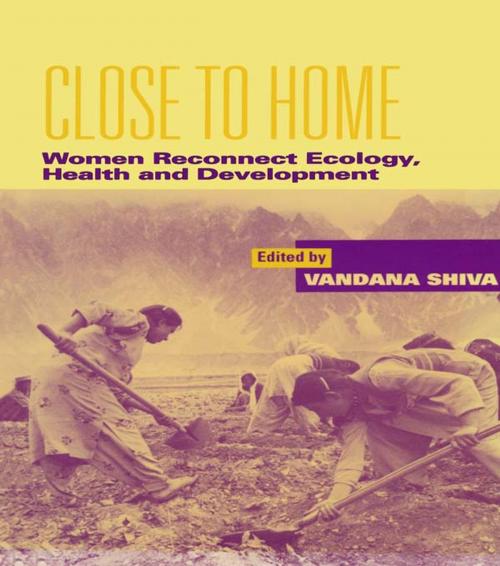Close to Home
Women Reconnect Ecology, Health and Development
Business & Finance, Economics, Economic Development| Author: | ISBN: | 9781134164738 | |
| Publisher: | Taylor and Francis | Publication: | January 14, 2014 |
| Imprint: | Routledge | Language: | English |
| Author: | |
| ISBN: | 9781134164738 |
| Publisher: | Taylor and Francis |
| Publication: | January 14, 2014 |
| Imprint: | Routledge |
| Language: | English |
It is 20 years since environmental issues were first put on the international agenda at the Stockholm Conference, and concern for planetary survival has shifted from desertification to acid rain to ozone depletion to biodiversity. The official responses to all the various crises, however, has largely been one of offering technological and managerial 'fixes,' which often fail to address or solve the basic ecological issues. Genuine, viable improvements can only be implemented at ground level, by those most strongly affected by the problem. Because of their location 'on the fringes,' and their traditional role in providing sustenance, it is women who are often able to offer ecological insights that are deeper and richer than the technocratic recipes of international experts, or the responses of men in their own societies. Close to Home emphasises that the environment is not some distant concern, but one that affects the health and well-being of communities on a daily basis. For women, 'the environment' is the place in which we live. The contributions in this book, edited by Vandana Shiva, show how women worldwide are taking action at grass-roots level, battling toxic wastes, low-level radiation and biotechnology in the struggle for truly sustainable community development.
It is 20 years since environmental issues were first put on the international agenda at the Stockholm Conference, and concern for planetary survival has shifted from desertification to acid rain to ozone depletion to biodiversity. The official responses to all the various crises, however, has largely been one of offering technological and managerial 'fixes,' which often fail to address or solve the basic ecological issues. Genuine, viable improvements can only be implemented at ground level, by those most strongly affected by the problem. Because of their location 'on the fringes,' and their traditional role in providing sustenance, it is women who are often able to offer ecological insights that are deeper and richer than the technocratic recipes of international experts, or the responses of men in their own societies. Close to Home emphasises that the environment is not some distant concern, but one that affects the health and well-being of communities on a daily basis. For women, 'the environment' is the place in which we live. The contributions in this book, edited by Vandana Shiva, show how women worldwide are taking action at grass-roots level, battling toxic wastes, low-level radiation and biotechnology in the struggle for truly sustainable community development.















